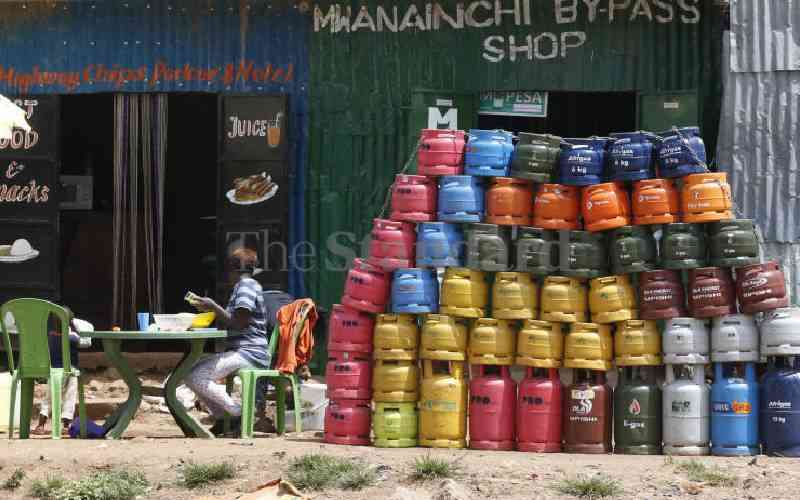The shilling continued to cede ground against the US dollar as Central Bank of Kenya (CBK) blamed the volatility on 'speculators'.
By close of business yesterday, the shilling had weakened further against the greenback, touching a 15-month low of Sh103.60/80 to the dollar.
But even as some analysts attributed the fall of the shilling to a surge in demand by importers, CBK insisted this was the work of a few opportunists and speculators at banks' treasury departments.
"They are trying to talk it down so that they can make a killing out of the shilling," explained a source at CBK who did not want to be named. The source went on to say that the CBK was aware and would soon act on the culprits.
"The fundamentals and data do not match the trend, CBK knows who they are (the speculators) and will deal with them soon. They know what would happen and that is why they are not allowing themselves to be quoted," said the source.
CBK said it was perturbed by the contradictions between the performance of the shilling and the current trend where the shilling is losing ground. "Whereas the shilling been one of the best performing, if not the best currency in the region, it has lost ground against the US dollar more than its peers in the region."
By Thursday, there were reports that CBK had dug in by selling more United States dollars to traders in a bid to stave off fall of the local unit.
According to news agency Reuters, the Central Bank's hard currency reserves have declined by $337 million since the first week of December to $6.97 billion, or the equivalent of 4.56 months' worth of import cover.
Analysts have, however, called for caution. Francis Mwangi, an investment analyst from the Standard Investment Bank, said in the past two years, CBK was very active in the market fighting the shilling's depreciation.
"The CBK has been sitting on 5.6 months of import reserves which have in the recent past seen the shilling hold its nerve against the dollar. CBK is not that active in the market now given that it's only the second day of trading of the year, and that could be the reason we are seeing the shilling weaken," Mwangi said on Wednesday.
The weakening of the shilling is bad news for importers and the economy in general as Kenya is a net importer.
The latest development in the currency front threatens the favourable petroleum bill Kenya has enjoyed lately as a result of the low pricing of the black gold in the international market. The situation is made worse by oil producers' plans to slash production of the commodity in a bid to address the glut in the global market.
A weak shilling will make exports more competitive and imports more expensive. This in turn contributes to inflationary pressures.
 The Standard Group Plc is a multi-media organization with investments in media
platforms spanning newspaper print operations, television, radio broadcasting,
digital and online services. The Standard Group is recognized as a leading
multi-media house in Kenya with a key influence in matters of national and
international interest.
The Standard Group Plc is a multi-media organization with investments in media
platforms spanning newspaper print operations, television, radio broadcasting,
digital and online services. The Standard Group is recognized as a leading
multi-media house in Kenya with a key influence in matters of national and
international interest.
 The Standard Group Plc is a multi-media organization with investments in media
platforms spanning newspaper print operations, television, radio broadcasting,
digital and online services. The Standard Group is recognized as a leading
multi-media house in Kenya with a key influence in matters of national and
international interest.
The Standard Group Plc is a multi-media organization with investments in media
platforms spanning newspaper print operations, television, radio broadcasting,
digital and online services. The Standard Group is recognized as a leading
multi-media house in Kenya with a key influence in matters of national and
international interest.









